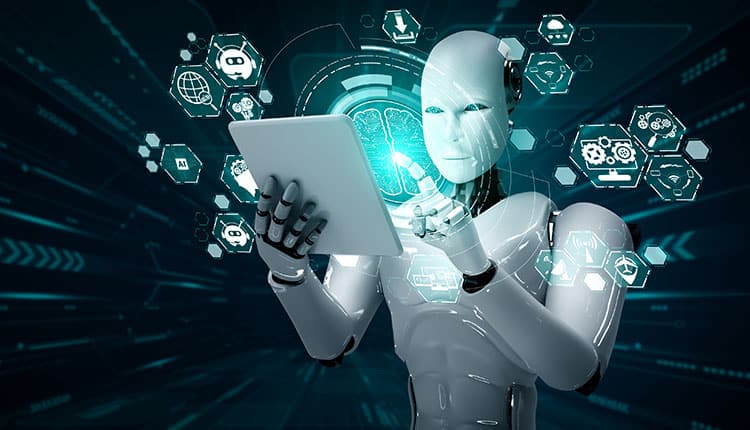AI has developed to a vast extent and some realistic examples involving AI are self-driving cars, chatbots, smart virtual assistants, etc. Our society is turning more technology-dependent and leading technologies like Artificial intelligence and Machine Learning are dominating human capabilities and eliminating age-old practices.
Experts have forecasted that AI can boost human efficiency while simultaneously serving as a threat to human capabilities and agencies. In addition to this, some forecast that AI robots with advanced technology will discuss humans on critical social matters and will also be able to think and ask queries that have not been asked previously.
AI scientists open up regarding the wider possibility of computers becoming on par with human intelligence or even surpassing them in activities like reasoning, decision making, learning, analyzing, recognizing patterns, etc.
On the other hand, some experts focus on the positive side of AI like involvement in healthcare, diagnosing and treating patients, aiding senior citizens to live a healthy lifestyle, etc. Apart from these fields, there is an expert prediction that AI will play a vital role in the education sector.
Keeping all these aside, what havoc will arise when the advanced abilities of AI surpass human abilities? Let’s discuss in detail below:
AI vs Human intelligence
Human intelligence works towards adopting newer environments by combining various cognitive processes while AI focuses mainly on building machines that can imitate human behavior and carry out actions similar to humans.
Human intelligence involves learning from past experiences and a variety of incidents. Physical intelligence involves learning from trial and error methods while machine learning requires continuous training to complete specific tasks.
Regardless of the training these machines receive, they were not able to achieve the thinking capability which is humans’ uniqueness.
The advancement of the human factor in AI has paved the way for machines to outshine humans in certain aspects. Recently tech lovers are taking innovations to the next level by designing and training AI to accurately copy human thinking and behaviors.
However, these AI systems will not be able to make informed decisions similar to humans, hence there is still a long road ahead of the machines to accurately think and make a decision like humans.
Humans contain the unique ability to apply the knowledge gained with a combination of reasoning, understanding, and ethical thinking. Real-life situations require a more logical approach that is more human-specific and cannot be achieved by machines very easily.
Will advanced AI outshine humans?
Tech giants have developed new AI systems that can debate with humans. In 2021, IBM established an autonomous system that can discuss complex matters with humans like preschool subsidization and various issues.
The first is project Debater. This system can listen to the debates and respond appropriately. Conventional debates involve individuals finding citations or quotes or references to support their arguments while this IBM model can scan the web within seconds and uses the data to convince in its favor thereby making it to win against humans.
The major thought in everyone’s mind is whether AI systems similar to Debater can think and ask questions that were earlier not asked and thought by humans. Some are in favor of this thought while others feel that AI systems still have a long path ahead of them to think and ask questions that are unaware to humans who were responsible for the creation of Artificial intelligence.
With the emergence of systems like Debater that can debate with humans with greater accuracy on intense topics, there is still time left to accept the reality that the arrival of those machines is not too far.
There is even a wider possibility that AI machines like Debater will convince the opponents’ views and push them to consider thinking innovatively.




